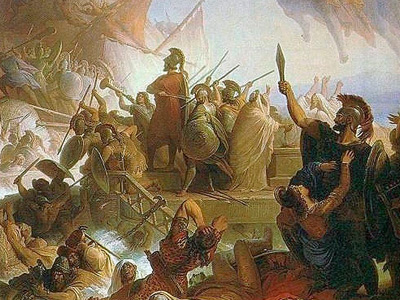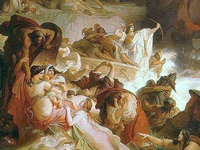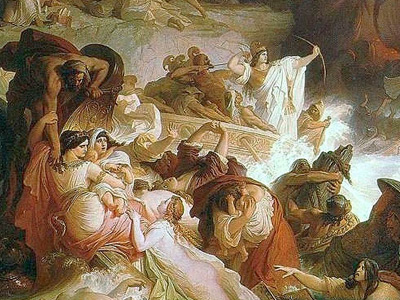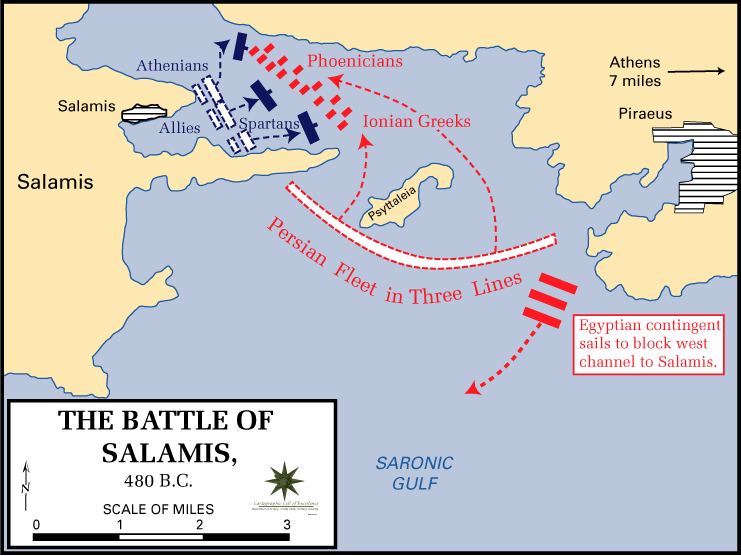Battle of Salamis (480 BC)

Significance
The Battle of Salamis marked the turning point in the Greco-Persian wars. After Salamis, the Peloponnese, and by extension Greece as an entity, was safe from conquest; and the Persians suffered a major blow to their prestige and morale (as well as severe material losses). At the following battles of Plataea and Mycale, the threat of conquest was removed, and the Allies were able to go on the counter-offensive. The Greek victory allowed Macedon to revolt against Persian rule; and over the next 30 years, Thrace, the Aegean Islands and finally Ionia would be removed from Persian control by the Allies, or by the Athenian-dominated successor, the Delian League. Salamis started a decisive swing in the balance of power toward the Greeks, which would culminate in an eventual Greek victory, severely reducing Persian power in the Aegean.
Like the Battles of Marathon and Thermopylae, Salamis has gained something of a 'legendary' status (unlike, for instance, the more decisive Battle of Plataea), perhaps because of the desperate circumstances and the unlikely odds. A significant number of historians have stated that Salamis is one of the most significant battles in human history (though the same is often stated of Marathon). In a more extreme form of this argument, some historians argue that if the Greeks had lost at Salamis, the ensuing conquest of Greece by the Persians would have effectively stifled the growth of Western Civilization as we know it. This view is based on the premise that much of modern Western society, such as philosophy, science, personal freedom and democracy are rooted in the legacy of Ancient Greece. Thus, this school of thought argues that, given the domination of much of modern history by Western Civilization, Persian domination of Greece might have changed the whole trajectory of human history. It is also worth mentioning that the celebrated blossoming of hugely influential Athenian culture occurred only after the Persian wars were won.
Advertisement

These books are available for download with iBooks on your Mac or iOS device, and with iTunes on your computer. Books can be read with iBooks on your Mac or iOS device.

These books are available for download with iBooks on your Mac or iOS device, and with iTunes on your computer. Books can be read with iBooks on your Mac or iOS device.
( Click image to enlarge)
Militarily, it is difficult to draw many lessons from Salamis, because of the uncertainty about what actually happened. Once again the Allies chose their ground well in order to negate Persian numbers, but this time (unlike Thermopylae) had to rely on the Persians launching an unnecessary attack for their position to count.
Since it brought about that attack, perhaps the most important military lesson is to be found in the use of deception by Themistocles to bring about the desired response from the enemy.
HISTORY

RESOURCES
This article uses material from the Wikipedia article "Battle of Salamis", which is released under the Creative Commons Attribution-Share-Alike License 3.0.
© Stories Preschool. All Rights Reserved.










